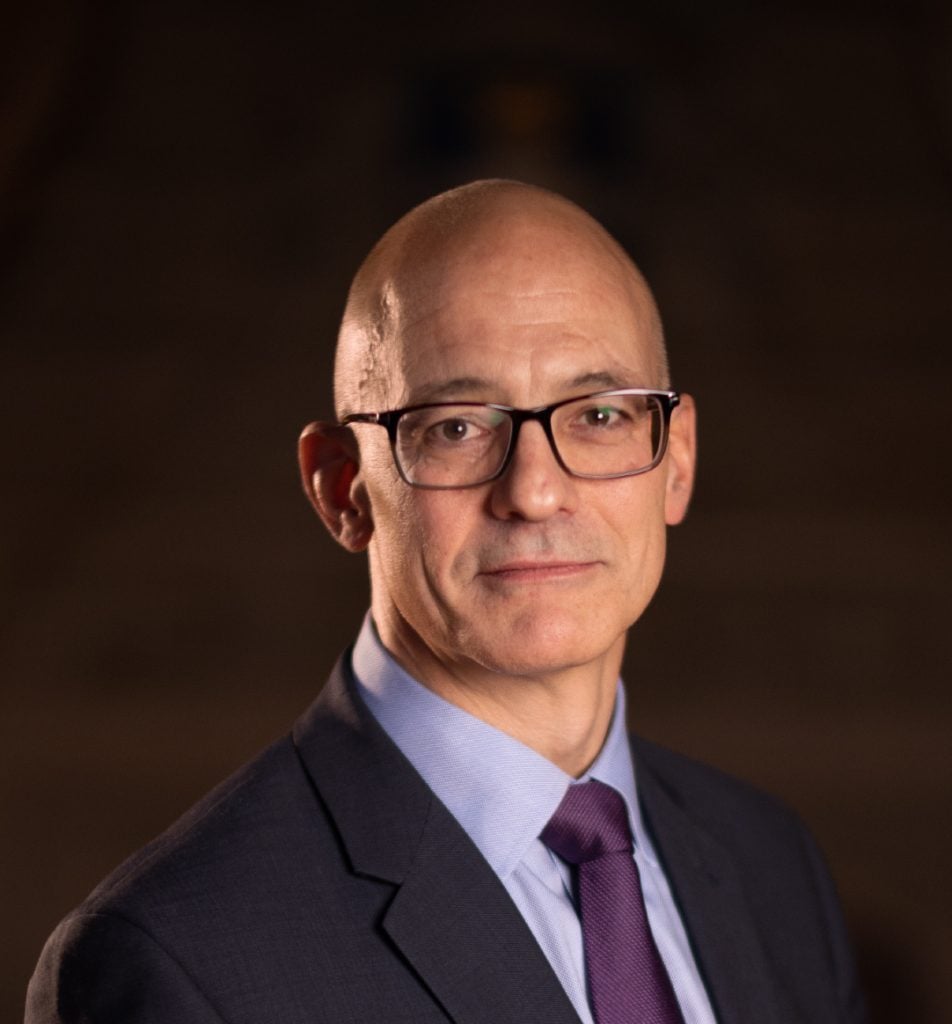
Many of us are now fully back at our day job having returned from last month’s ENDO in Boston. The meeting was a fabulous success. There was such a buzz around the conference center, where friends and colleagues, old and new, met to discuss the very best in science and clinical practice.
Congratulations and a fantastic job well done must go to Immediate Past- President Steve Hammes, ENDO 2024 Chair Lauren Fishbein, the other chairs and the whole of the Annual Meeting Steering Committee, and all the dedicated and amazing staff who worked tirelessly to deliver this superb event.
A key theme woven throughout the meeting was nurturing the next generation, and as every parent knows, this requires dedication, planning, and a lot of hard work. I’m proud to say the Society recognizes the importance of this effort and has taken concrete steps to ensure our field remains strong into the future. One of the most visible steps toward this goal was on display at ENDO 2024, where representatives of the inaugural Medical School Engagement Program (MSEP) met to discuss how they can help grow the ranks of endocrinology.
The 2024 MSEP participants are:
- Albert Einstein College of Medicine
- Indiana University School of Medicine
- Stanford University School of Medicine
- University of New Mexico School of Medicine
- University of Cincinnati College of Medicine
- University of Iowa, Carver College of Medicine
- University of Minnesota Medical School
- University of Virginia School of Medicine
- Vanderbilt University Medical Center
- University of Rochester School of Medicine and Dentistry
These institutions have committed to helping address challenges facing the endocrinology pipeline specifically in the United States. Since 2010, the number of U.S. medical school graduates pursuing endocrinology has declined. This shortfall, however, is not limited to U.S. medical schools. In the U.K., where I teach, we, too, are experiencing challenges in attracting more medical students to this specialty. Although there are some exceptions, many other countries are seeing similar trends.
Overall, we want endocrinology to be seen as an attractive career option for medical students across the globe. One of the hurdles we recognize is that endocrinology remains largely an outpatient specialty. Medical school curricula are so packed and demanding that it can be tricky for us to provide the same kind of exposure and excitement around endocrinology that practitioners of other high-profile disciplines can provide for students who are doing their rotations in a hospital setting — many students simply do not get to see what endocrinology is all about.
The MSEP gets at the heart of this dilemma. Participating institutions will receive the resources and opportunities needed to demonstrate the clinical and intellectual vibrancy of our field.
Among other activities, the program establishes Endocrinology Interest Groups at each institution. These groups will serve as a conduit for funding faculty-led sessions that highlight the best of endocrine practice and research.
The MSEP also aims to generate excitement through a new “Excellence in Endocrinology” Award, which will be open to preclinical and senior-level medical students. Winners of these awards will receive free attendance at ENDO, where they will participate in the Endocrinology Mentor Day activities and meet with Society leaders.
Mentorships Underscore Benefits of Endocrinology to Medical Students and Residents
On that note, I’m delighted to announce the success of our second annual Endocrinology Mentor Day at ENDO 2024. The program this year attracted roughly 70 students and residents who connected on site with seasoned endocrine professionals.
I attended and spoke at the welcome session, and it was clear that the program of activities resonated with the attendees. The mentors then guided their charges around ENDO, introducing them to the meeting’s signature programs, such as poster presentations, interesting case studies, and a plenary session.
The feedback on this day has been phenomenal. Between the growing interest in our Endocrinology Mentor Day program and our newly minted MSEP class, I can’t help but be optimistic about the future. Like all professions, success hinges on making personal connections with young people who are at the beginning of their own career paths. With initiatives such as these that the Society is pioneering, I’m confident in the years ahead we will see more and more medical students on the path to becoming our colleagues.
For more information, visit: www.endocrine.org/MSEP.

